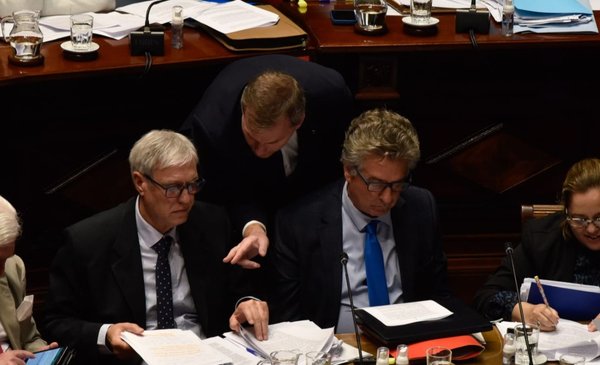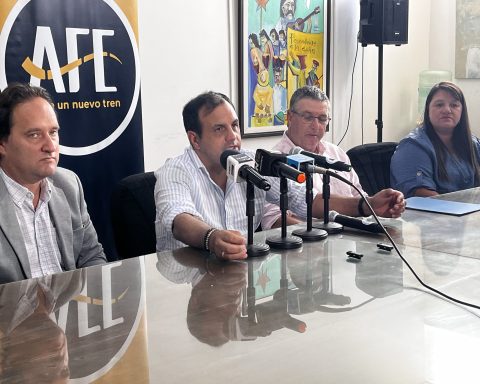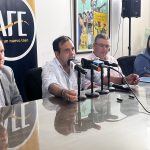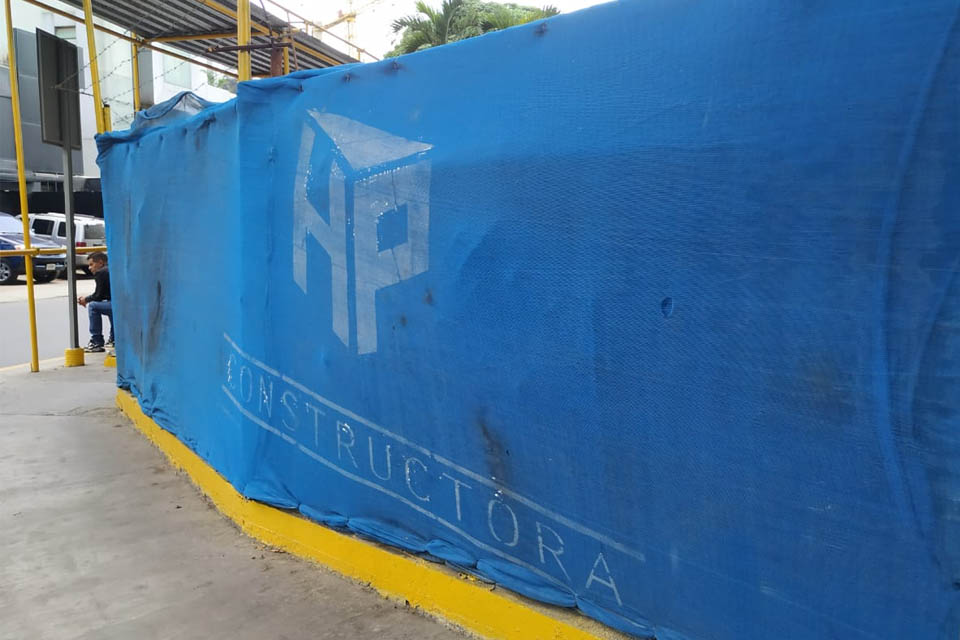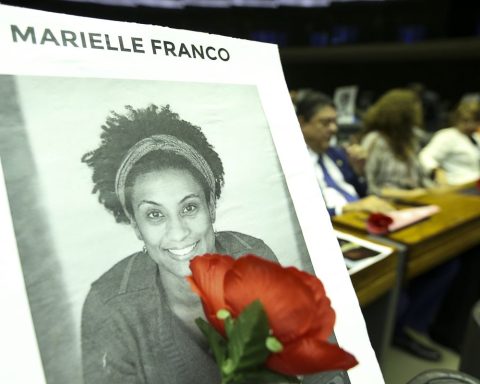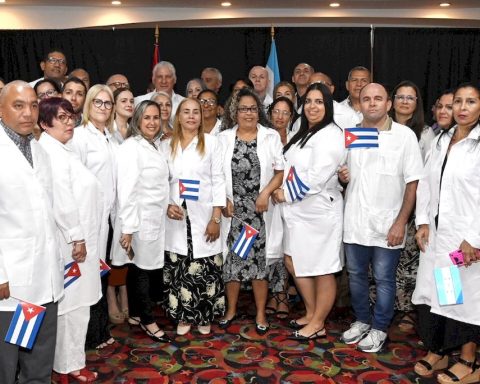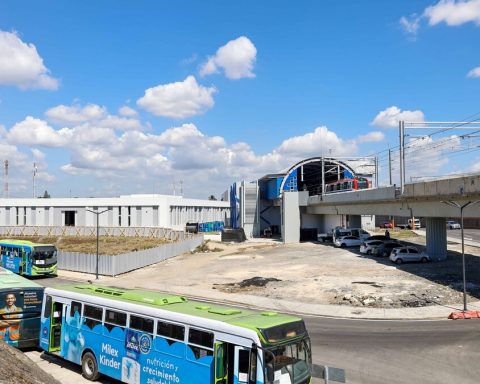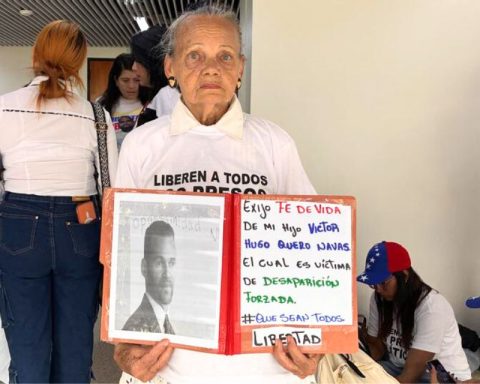Uruguay is going through the most important drought of the last century, with a rainfall deficit that reaches three years, and led OSE to increase the salt in the water that comes out of the taps as an emergency measure to stretch the reserves it has.
The situation prompted the Broad Front to ask President Luis Lacalle Pou to remove the OSE board, considering the responses they gave during the interpellation insufficient, after noting that the authorities of the public company had a “worrying passivity” and ignored the warnings made by specialists.
In the ruling party, outside of the microphones, they recognize that OSE could have been more proactive in management, but also in communication, since in February it ordered a series of measures due to the drought but did not continue to warn that the situation was worsening because it was raining much less than predicted.
In turn, they point out that the existence of “multiple spokespersons”, in reference to the public outings of OSE hierarchs and the Ministers of the Environment and Public Health, with different messages -and sometimes unfortunate- was not good either and helped to cultivate feelings of lack of control that caused, for example, significant increases in the sales of bottled water.
Photo: Leonardo Carreno.
Álvaro Delgado was the government spokesman
Presidency sources told The Observer that although there was no evaluation of how the communication was being carried out, (which until now had been a high point of the government) for the press conference held on Tuesday it was considered necessary to “join all the ends” and provide a “full message” after “coordinate it with the actors”.
In this sense, it was understood that the best thing was for this message to be given by the Secretary of the Presidency, Álvaro Delgado, who has been coordinating all the water issues – in reference to the Arazatí projects and sanitation in the interior – and that the “logical” thing was for him to report it with the ministers at his sides.
dissonant voices
With Fernando Pereira at the helm, this Friday the left-wing coalition claimed that this communication should have been led by President Luis Lacalle Pou. “We do not understand that the president does not attend, that he is absent from an issue that is the most important that almost two million Uruguayans have today,” said the opposition president.
The ex-unionist wondered if it was more important to “take care” of the president’s image or “give peace of mind” to Uruguayan society, while Yamandú Orsi was surprised by the absence of Lacalle Pou in a previous meeting on Monday in the Executive Tower, coordinated by Environment, Public Health and OSE, which was also attended by Carolina Cosse (Montevideo) and Mario García (Lavalleja).
Despite the fact that the Presidency indicates that Delgado had been coordinating that area, and therefore was the ideal person to appear publicly, Lacalle Pou could not have officiated as spokesperson because he had the flu at the residence of Suárez and Reyes.
The president reappeared publicly on Thursday, in commemoration of Army Day and the Battle of Las Piedras, and also remained silent this Friday, when he attended several inaugurations in Tacuarembó.
in sight
Beyond this situation, in the ruling party they recognize that the OSE management is in the crosshairs and that President Raúl Montero (who is a person of political confidence of Senator Sergio Botana) is with a “yellow card” due to an accumulation of cases which includes “tensions” with the Presidency and the OPP, sometimes due to delays in decisions or resolutions without consultation, as was evidenced twice with the Arazatí project.
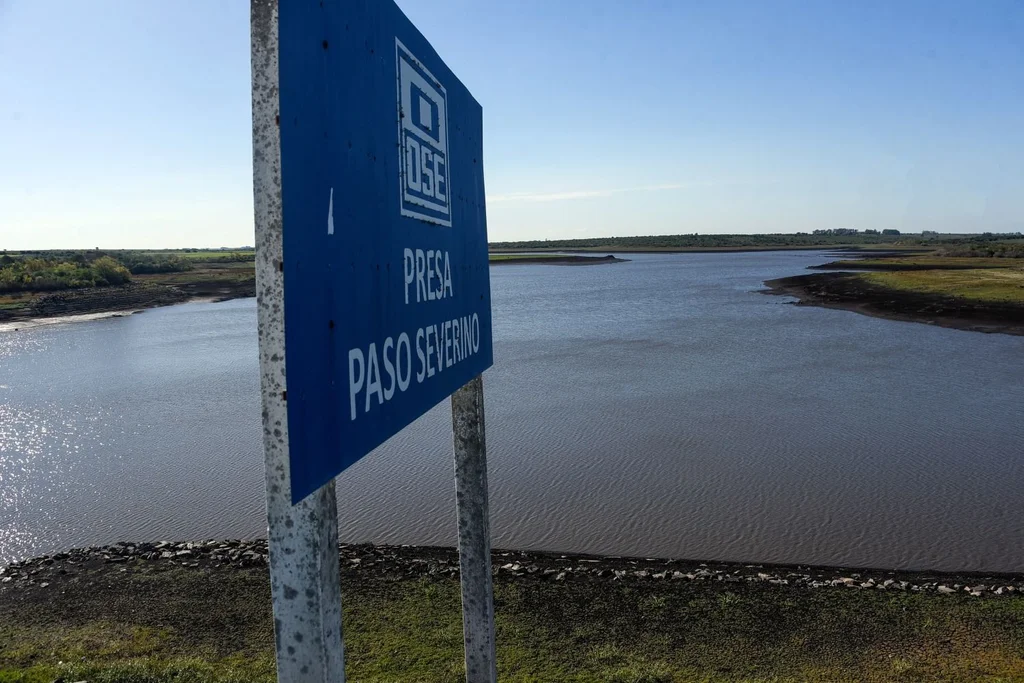
Ines Guimaraens
The drop continues due to the low rainfall
In November of last year, the then environment minister, Adrián Peña, had to attend the meeting of the OSE board of directors to ensure that the project was approved in that session, after several delays and some objections.
Then, in April of this year, the director of the OPP, Isaac Alfie, sent a letter to Montero because OSE officials had said in an inter-institutional meeting that the changes to the project – which increased the approved costs by US$ 50 million – They had the endorsement of that office, which is the one with which they coordinate investments.
The tensions between OSE, the MEF and the OPP were whitewashed by Peña in an interview with Fácil Deviarse, in which he acknowledged that “people from the economic team” told him “it will not happen.” “He told my people from the economic team that it will not happen (to run out of water). They always screw with this and it will not happen, ”he recalled and added that the issue“ has changed ”and that Uruguay is“ greatly affected by climate change ”.
The former minister considered that the public welfare campaign “arrived late” and there was an “omission” in not having previously used the tool. “In communication there are things to improve. There should have been a higher level of information, especially when it is politicized. You had to have quicker reflexes, ”he added.
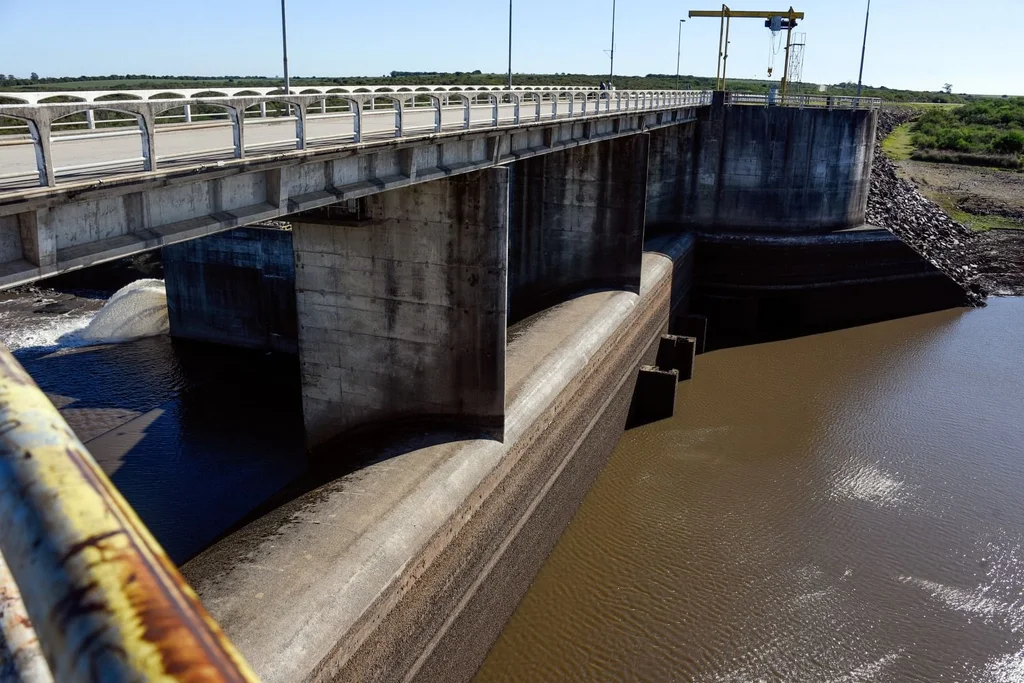
Ines Guimaraens
Paso Severino is with the minimum of reserves
After the questioning, Montero told Radio Sarandí that he had been telling the truth without hiding it all the time, but that “perhaps” his “sin” was trying not to “generate alarms.”
Several days before, in an interview with FM Del Sol, the chief had said that he was making a “mea culpa” for the way they were communicating the situation.
Passivity
The director of OSE for the Broad Front, Edgardo Ortuño, told The Observer that the measures were taken outside the board of directors, which led to the fact that in some cases it was found out by the press, since it was only after they were announced that they were endorsed in the regular meetings of the public company.
He pointed out that despite the fact that the reserves had been falling, no contingency measures were taken and he mentioned that the only “warning” was when the general management announced in March that it had asked the MSP about the possibility of increasing the maximum values of chlorides and sodium in Water.
In the interpellation, the opposition senator Alejandro Sánchez criticized that “they have known for six months that we are running out of water” and that “all the ideas” – announced by Delgado – could have been “done three months ago.”
Sánchez’s statements were due to the fact that in October last year Montero had said that the water situation was worrisome.
“The only thing I want to highlight is the fragility of the water supply in the metropolitan area. Many times, the Santa Lucía River does not give us the water that we need; many times, it gives us less, we eat up the Paso Severino reserve and we enter a countdown that, believe me, is difficult to bear. We are already at a zero moment. Paso Severino is 4 centimeters below the overflow level, ”he said then in Parliament.
media timeline
On February 9, the metropolitan management asked OSE to take action due to the drop in reserves and the few forecast rains, and the board of directors began to increase the grams of chloride and sodium but within what was allowed, while it resolved to prohibit the uses non-priority drinking water and announced sanctions.
A week later, on February 15, he warned the dialysis centers for the increase in salts.
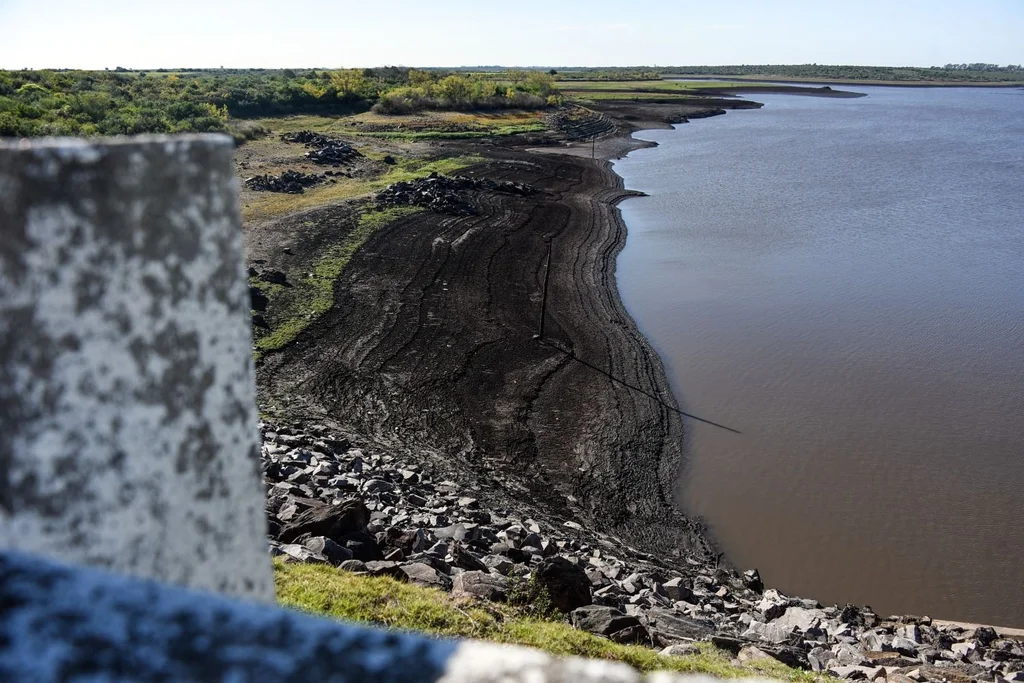
Ines Guimaraens
Reserves at Paso Severino continue to decline
On March 2, the company started the contingency plan and an inter-institutional committee was formed with URSEA, MSP and Environment. Seven days later, the company requested an opinion from the MSP to raise the maximum allowed values of chloride and sodium given the situation of low reserves. A document signed by the general manager Arturo Castagnino indicates that it could happen “someday”, to which the MSP replied that the exceptionality was only granted if the values exceeded in a sustained manner over time.
Despite the fact that the reserves in Paso Severino were falling considerably –from 25,621,940 on March 8 to 12,000,000 cubic meters on April 26–, OSE remained silent until that date, in which it resolved the increase in values of chloride and sodium.
After the announcement, the following day the Minister of the Environment, Robert Bouvier, indicated that the water was still drinkable. A few days later, on May 3, Ortuño asked to know the opinion of the MSP while the Senate approved the interpellation.
The next day, May 4, OSE increased the values again and the Minister of Public Health, Karina Rando announced that there were no “risks.”
Four days later, the chief said that she would meet with specialists to refine recommendations, and then the mayor Carolina Cosse offered data on water in polyclinics and a series of measures.
After this, the government announced other provisions through Mides and on May 11, Bouvier recognized that the water was “drinkable” but “not potable”. Following a claim from the FA, a day later a public welfare campaign began on radio and television, and on May 16 – a day before the interpellation – Delgado’s conference took place with new measures.
